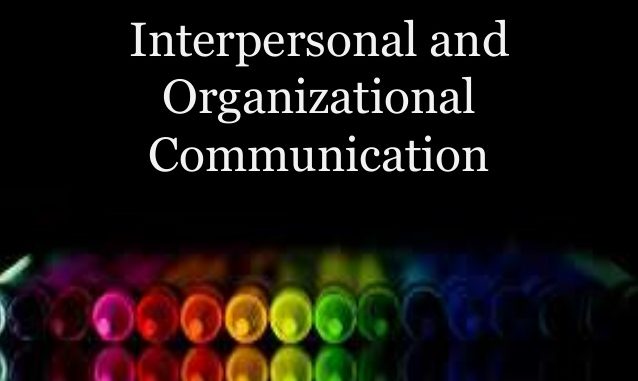
Interpersonal and Organizational Communication
Communication skills are essential to our personal and professional lives. … In our interpersonal and organizational communication concentration, you will study persuasion, small groups, conflict, gender, culture, public speaking, media, and family relations. Interpersonal and Organizational Communication are areas of study that combine the complex communicative behaviors that occur in relational and organizational settings. Students pursuing the Interpersonal and Organizational Communication emphasis have a variety of courses to choose from that prepare them for careers in personnel, human relations, training, guidance, sales, human services, and many other professions. In addition, students in areas such as business, forestry, paper science, education, psychology, and political science often find the skills taught in Interpersonal/Organizational courses to be invaluable for preparing them for their future careers. This is a highly flexible emphasis, emphasizing the complex nature of communication in everyday life and its importance to success in both business and personal settings.
Concepts
This concentration examines communication among persons and groups, in formal and informal settings. It focuses on theories, concepts, and practices appropriate to institutional settings, including families. Students will explore various aspects of the human behavior of people in groups and teams. Coursework focuses on the study of professional and personal relationships and explores such issues as conflict, decision-making, diversity, small groups, persuasion, gender, culture, interviewing, leadership, nonverbal communication, media, public presentation, health, the environment, and family relations.
Purposes
Communication is the heart of any business regardless of what you do, how many employees you have and to whom you sell. The process of interpersonal communication in business involves sending and receiving messages with colleagues, managers, partners, customers and other business stakeholders. Effective interpersonal communication happens when the message is understood as it was intended. Interpersonal skills are also known as “people skills”. By forming interpersonal relationships with customers and employees, you are able to acknowledge the feelings of others and convey respect. You can also focus on the positive outcomes of varied viewpoints while nurturing professional growth.
Seeing yourself as others see you is the first step to improving your interpersonal communication skills. Here are some other ways to improve your interpersonal communication skills.
Be more approachable – implement an open door policy; determine if you are perceived as unapproachable and work to resolve; become more involved in your employees’ daily functions.
Build rapport – take an interest in your customers and employees; engage in periodic, casual conversations; discuss mutual non-business interests; share your personal interests.
Strive to make others comfortable with you – refrain from being overly serious; control your intensity; smile frequently while speaking; use appropriate humor; monitor sarcasm.
Strengthen your ability to make “small talk” – prepare opening statements about current events; discuss the weather; listen for “free” information while others speak; ask questions about the “free” information you heard.
Treat others fairly – offer recognition to everyone as appropriate; monitor and avoid favoritism; remain neutral in workplace disputes; explain the rationale behind decisions you or the organization makes.
Become more social – widen your group of acquaintances; speak up in group situations; network whenever possible.
You may also like: Techniques of Employee Motivation

Leave a Reply